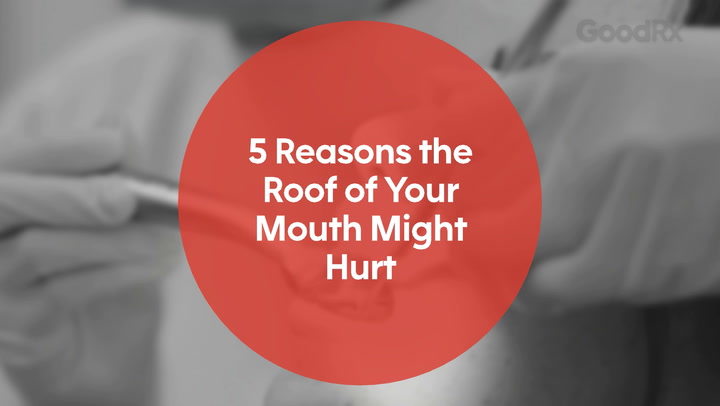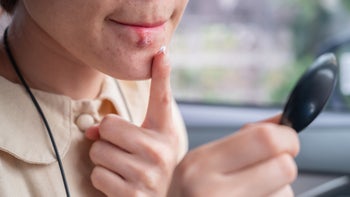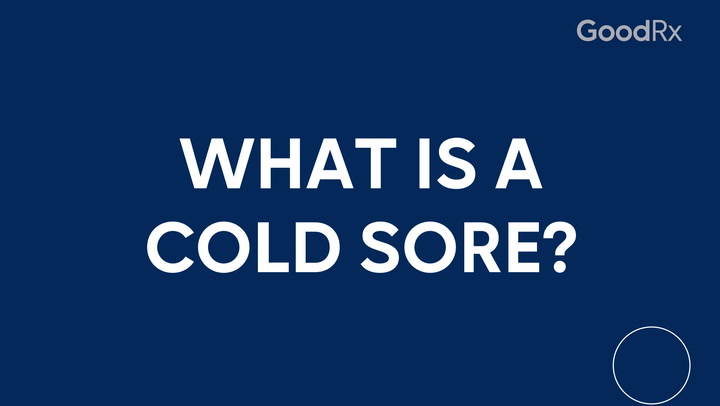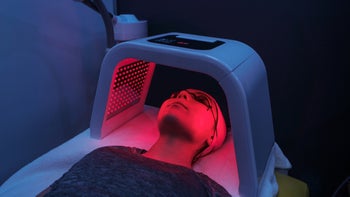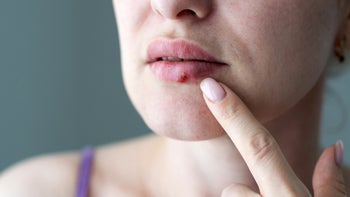
Lysine for Cold Sores: Does It Actually Work?
Key takeaways:
Although there’s no cure for cold sores, lysine supplements may help shorten the duration of an outbreak. They may also help prevent cold sore outbreaks from coming back.
Cold sores are caused by the herpes simplex virus, which lives in your body and resurfaces from time to time. Scientists think that lysine prevents the virus from reproducing and causing an outbreak.
Certain people — like those who are pregnant or breastfeeding — should avoid taking lysine supplements until research can determine if it’s safe for them.

Cold sores can be a real pain in the mouth. And it’s hard to predict how big they’ll get or how long they’ll last. While there’s no cure for cold sores, treatments can help them go away faster — and prevent them from coming back. Lysine supplementation is one of these treatments that may help by interfering with the virus that causes cold sores.
What is lysine?
Lysine is an essential amino acid, meaning the body doesn’t produce it naturally. Instead, you get lysine from the foods you eat. Amino acids make up proteins in your body. Lysine is important for many different bodily functions, like wound healing and the absorption of minerals like calcium.
Scientists think that lysine helps with cold sores by blocking the production of another amino acid, arginine. The virus that causes cold sores — herpes simplex virus (HSV) — needs arginine to reproduce. Lysine may also prevent the absorption of arginine in your intestine, which could slow or prevent the replication and growth of HSV.
Lysine comes as a cream you can apply directly to a cold sore. It’s also available as an oral supplement, chewable, and powder forms. Most of the existing studies — and all those mentioned in this article — have looked at the oral supplement.
Do lysine supplements actually help with cold sores?
Lysine may help prevent and treat cold sores, but research is limited. Some studies show that regularly taking lysine can help prevent outbreaks. Others show that it can both prevent cold sores and help them heal faster.
One study shows that lysine lessens symptoms, shortens healing time, and prevents cold sores from returning. Another small study found that people who took 1,000 mg of oral lysine daily had smaller cold sores than usual during outbreaks. But it’s worth noting that these studies are older, and newer research is limited.
Your guide to cold sore medicines: Our experts review your options for over-the-counter and prescription medications to help you get rid of cold sores.
Does red light therapy work for cold sores? Early research suggests red light therapy can help shorten the duration of cold sores. But there are a few caveats.
Lysine vs. Abreva: If you prefer using a topical treatment for cold sores, here are your different options and the best ways to use them.
There’s no cure for HSV, so taking lysine doesn’t get rid of the virus completely. This means you could still get outbreaks, even if you take lysine.
How fast does lysine work on cold sores?
More research is needed to know how fast lysine works on cold sores. But a couple studies have tried to answer this question.
One study compared adults who took lysine for a cold sore outbreak to those who didn’t. Cold sores completely resolved in 3 days for almost half of the people in the lysine group. And nearly all of them saw complete resolution by day 6. In comparison, healing time took up to 21 days for people who didn’t use lysine.
A larger study surveyed over 1,500 people with cold sores. Of those who didn’t take lysine, 90% reported that healing took 6 to 15 days. In comparison, 83% of those who used lysine said their lesions healed within 5 days.
How much lysine should you take for cold sores?
There’s no standardized dosage of lysine. Some studies have used 300 mg of lysine per day, while others have looked at the effects of 3,000 mg daily.
In general, dosages range from 500 mg to 1,000 mg daily by mouth to prevent outbreaks. For active outbreaks, higher doses, like 3,000 mg (3 g), may be appropriate for a short period of time.
Some experts suggest that lysine is safe at dosages up to 6,000 mg (6 g) daily. But most research recommends a maximum of 3 g per day. And you should only take it for a short period of time during active outbreaks.
Instructions for over-the-counter (OTC) lysine cream suggest applying it as often as every 2 hours. But there’s no firm research to support that the cream definitely works.
While lysine is generally safe at the above doses, some people may experience unwanted side effects.
What are the risks of taking a lysine supplement?
Common side effects of a lysine supplement may include:
Nausea
Abdominal pain
Cramps
Diarrhea
Kidney problems
Gallstones
Some people may want to avoid lysine completely because of side effects or safety concerns.
Who should not take lysine?
You should not take lysine if you:
Are pregnant or breastfeeding: There isn’t enough research to know if lysine is safe during pregnancy or while breastfeeding.
Take calcium supplements: Lysine increases calcium absorption, which can lead to excessive calcium levels. Too much calcium can lead to muscle pain, weakness, bone pain, and other symptoms.
Have gallstones: High doses of lysine can cause gallstones to form. If you have a history of gallstones, it’s best to avoid lysine.
You should also avoid lysine if you have a condition that lowers arginine levels, or are currently healing from a wound. This includes those with:
Kidney disease
Sickle cell disease
Recent surgery
Recent trauma or injury
As with any supplement, consult with a healthcare professional before taking lysine. They can check to see if it’s safe for you, or if there are any potential interactions with your other medications.
Frequently asked questions
If you’re looking for a topical treatment for cold sores, Abreva (docosanol) and lysine are available OTC. Abreva is an FDA-approved treatment for cold sores, and research suggests it’s effective when started at the beginning of an outbreak.
In contrast, topical lysine isn’t FDA-approved, and there’s no available research to suggest it works. So, Abreva is likely more effective than topical Lysine.
Lysine increases the absorption of calcium. So if you’re taking lysine, it’s best to avoid calcium supplements. This could lead to high levels of calcium in your blood, which can cause serious health problems. These include constipation, muscle weakness, and disorientation. Too much calcium can also lead to a dangerously low heart rate or high blood pressure.
You can take lysine supplements every day to treat or prevent cold sores. Research suggests this is safe for most people, provided you take a reasonable dose.
If you’re taking lysine supplements to prevent an outbreak, take no more than 1 gm per day. A dose of 500 mg a day has been shown to be effective.
If you’re taking lysine supplements to treat an outbreak, you can take up to 3 g per day. But it’s important not to continue this high dose for an extended period of time.
The bottom line
Scientific evidence suggests that lysine may help treat and prevent cold sores. But more research is needed to know exactly how it should be used. In general, lysine is regarded as a safe supplement for most people to try. But some people shouldn’t take lysine without first talking with their healthcare team. This includes anyone who is pregnant or breastfeeding, as well as those who are prone to gallstones or taking calcium supplements.
Why trust our experts?


References
Bumpstead, L. (2013). Long-term use of supplemental lysine--is it safe? Journal of the Australian Traditional Medicine Society.
Chang, J. Y., et al. (2023). A narrative review of alternative symptomatic treatments for herpes simplex virus. Viruses.
Griffith, R. S., et al. (1987). Success of L-lysine therapy in frequently recurrent herpes simplex infection. Treatment and prophylaxis. Dermatologica.
Marcason, W. (2003). Will taking the amino acid supplement lysine prevent or treat the herpes simplex virus? Journal of the Academy of Nutrition and Dietetics.
Mount Sinai. (n.d.). Lysine.
Singh, B. B., et al. (2005). Safety and effectiveness of an L-lysine, zinc, and herbal-based product on the treatment of facial and circumoral herpes. Alternative Medicine Review.
Thein, D. J., et al. (1984). Lysine as a prophylactic agent in the treatment of recurrent herpes simplex labialis. Oral Surgery, Oral Medicine, Oral Pathology.
Walsh, D. E., et al. (1983). Subjective response to lysine in the therapy of herpes simplex. Journal of Antimicrobial Chemotherapy.


